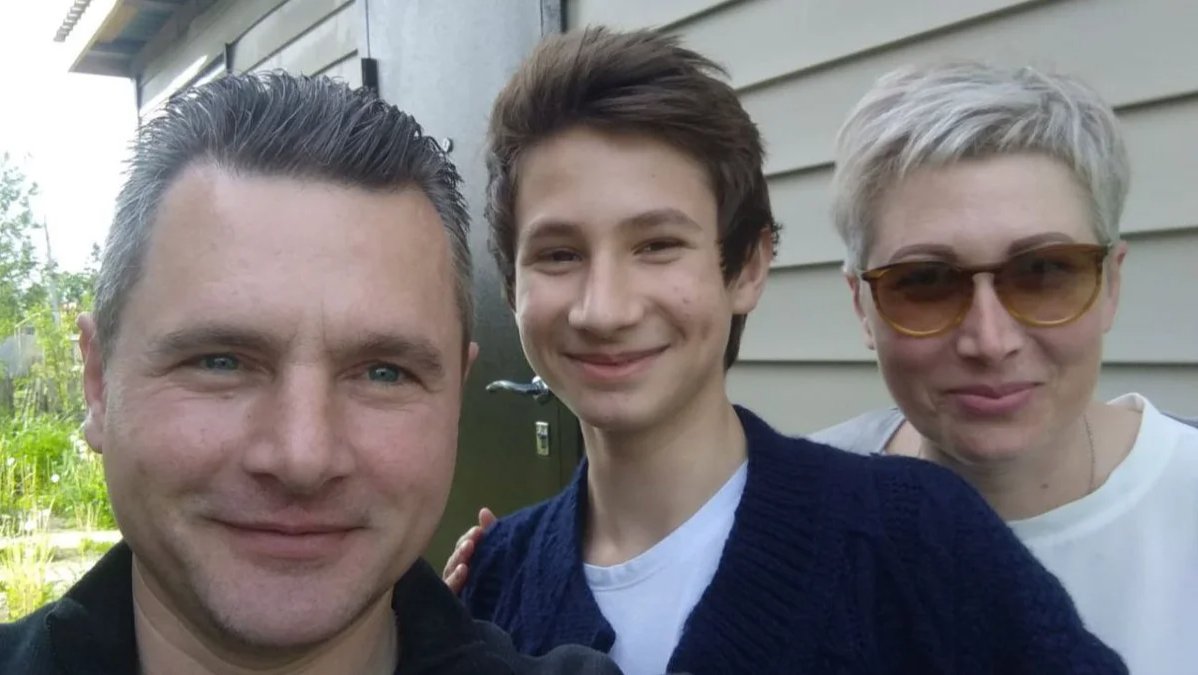On 23 October, a St. Petersburg court began hearing the case of 17-year-old Yegor Balazeykin, who prosecutors have charged with terror offences for planning to set fire to military recruitment offices in St. Petersburg and the town of Kirovsk in February 2023. He is now facing up to 15 years in prison.
This is a version of the article first published by Novaya Gazeta Baltija.
As well as still being a minor, Balazeykin suffers from autoimmune hepatitis, an incurable disease that has begun to worsen significantly during the eight months he’s now spent in detention.
Balazeykin was detained late on 28 February after he threw a bottle containing a flammable liquid at a military recruitment office in the town of Kirovsk, in Russia’s northwestern St. Petersburg region. The bottle shattered, the liquid spilled but nothing caught fire. The damage was limited to a few stains on the wall.
Initially charged with deliberate damage to property, Balazeykin was interrogated for the first time in the presence of a state-appointed lawyer as his parents hadn’t yet had time to hire anyone. After questioning him, however, investigators decided to charge him under far more serious anti-terrorism legislation instead, and promptly arrested him.
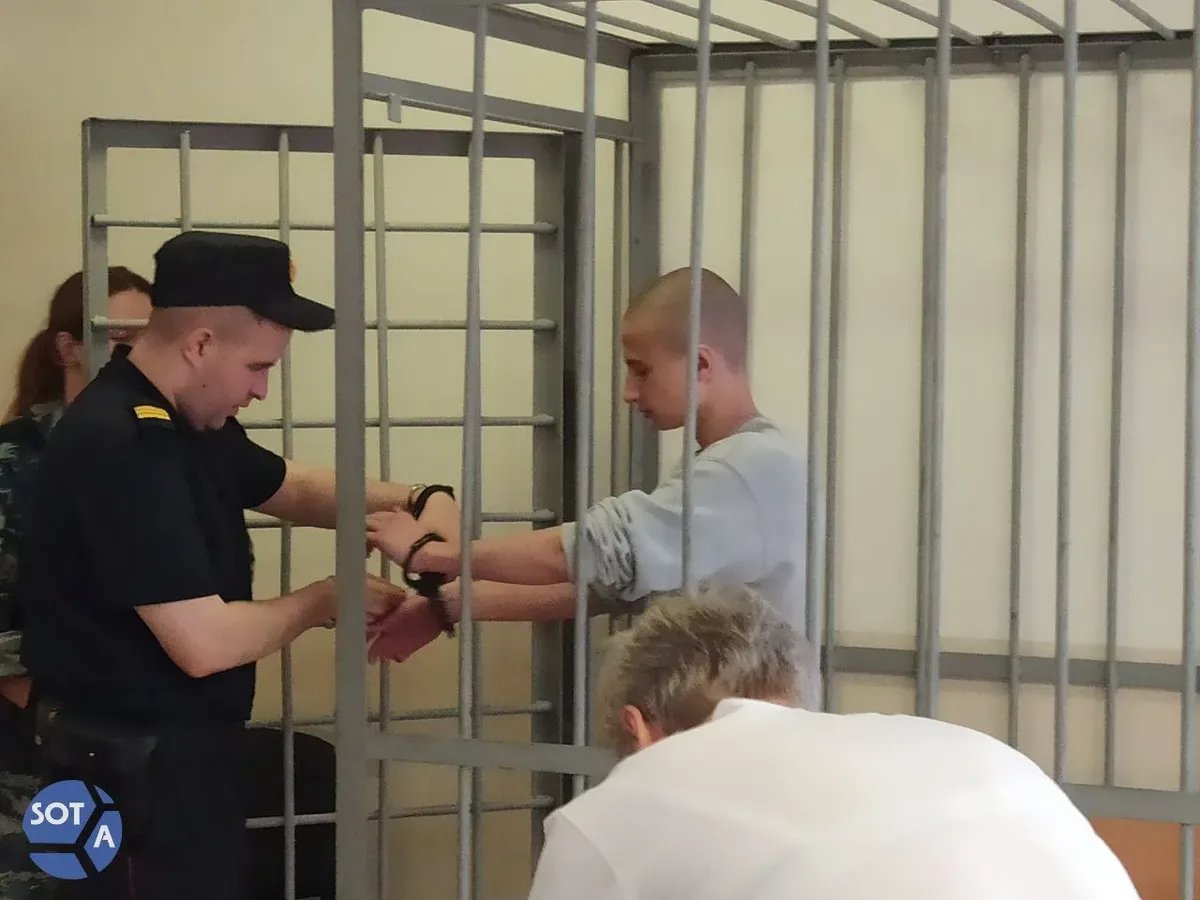
Yegor Balazeykin. Photo: SOTA
Minors in Russia can only be placed in custody if it’s the “only available” option and they are accused of a serious crime. The prosecution argued that Balazeykin was “a dangerous criminal who could potentially flee justice”, despite knowing full well about Balazeykin’s poor health.
During his time in the detention centre Balazeykin’s liver fibrosis worsened much faster than it had done when he was free. The final stages of fibrosis can potentially be lethal.
His parents, Tatyana and Daniel, have not been able to see their son at all in the past month and have been forced to make do with receiving short updates on his health from his lawyers. Balazeykin has been waiting for his trial for eight months but has never had any illusions about its outcome.
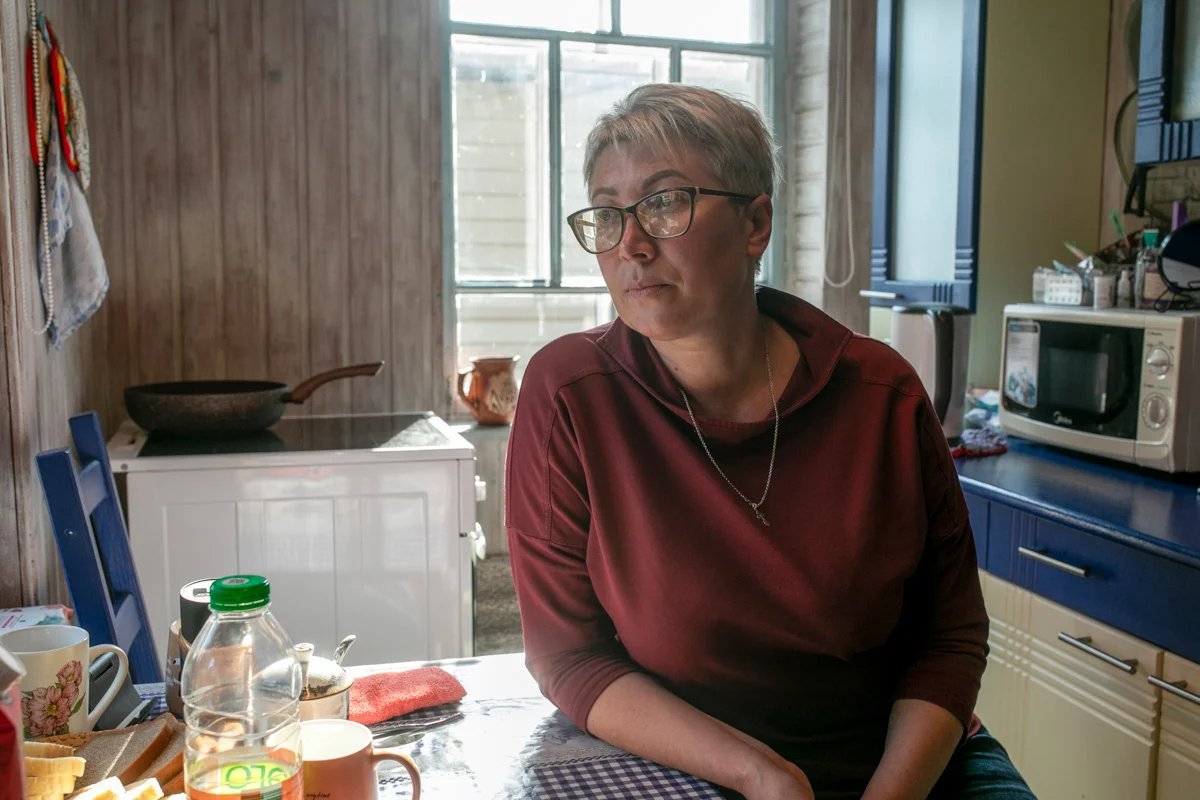
Tatyana Balazeykina, Yegor’s mother. Photo: Dmitry Tsyganov
“He has a much calmer and more reasonable outlook on all of this than we do,” Tatyana says. “Deep inside, we still have a sliver of hope that the judges will turn out to be fair, that the prosecutors won’t be vindictive and he won’t be locked away for 10 years. But Yegor says, ‘Stop it, forget this nonsense, don’t be optimistic, don’t hope for legal technicalities, drops of humanity or miracles. None of that will happen. I told you immediately after my arrest that we all know full well what the outcome of the case will be’.”
‘Not the end of the world’
The family home in Otradnoye, a small town in the St. Petersburg region, has fallen quiet and empty since Yegor was detained on 1 March. Even though he’s not been home for eight months, school books from the tenth grade cover the desk in Balazeykin’s empty room. He entered the eleventh grade while in detention.
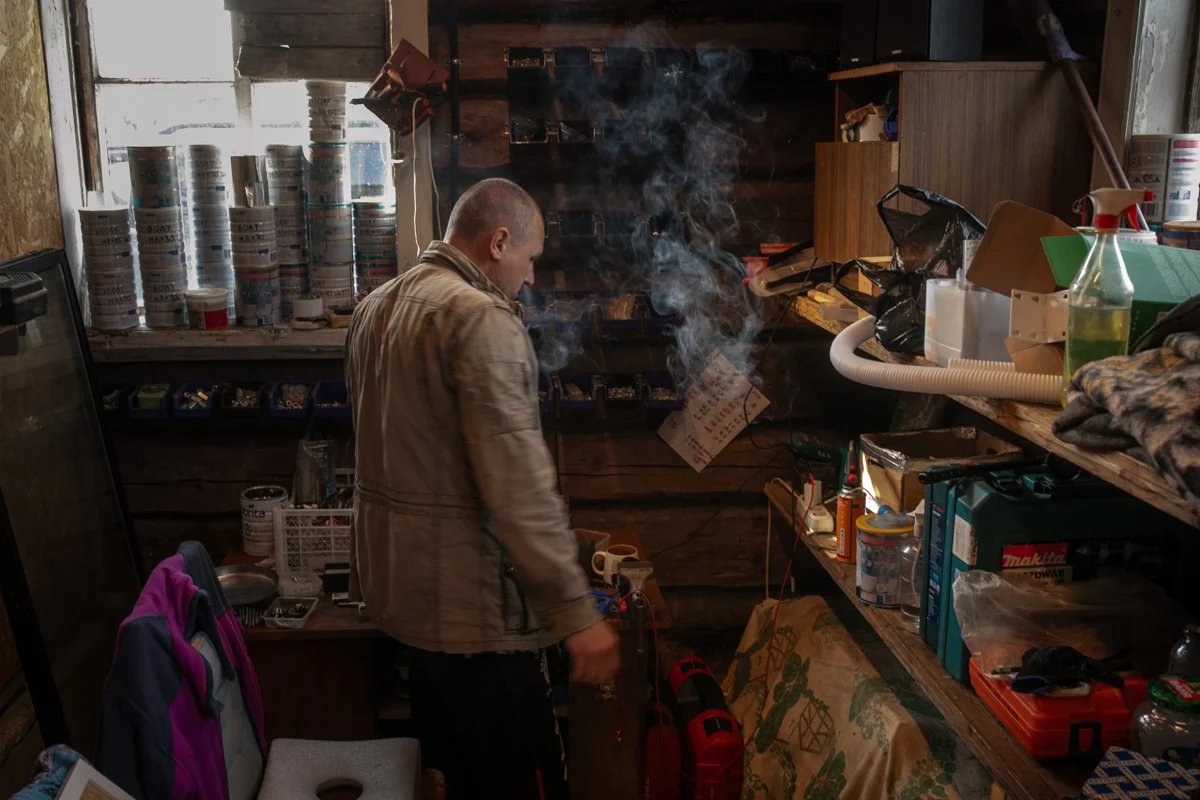
Daniel Balazeykin, Yegor’s father. Photo: Dmitry Tsyganov
The sofa in the living room is now taken up by a large box containing medicine, food and books to be sent to Yegor at the detention centre. “Last time we handed over 15 packages,” Daniel says. “But we always give much more because we know that Yegor will share the contents with everyone.”
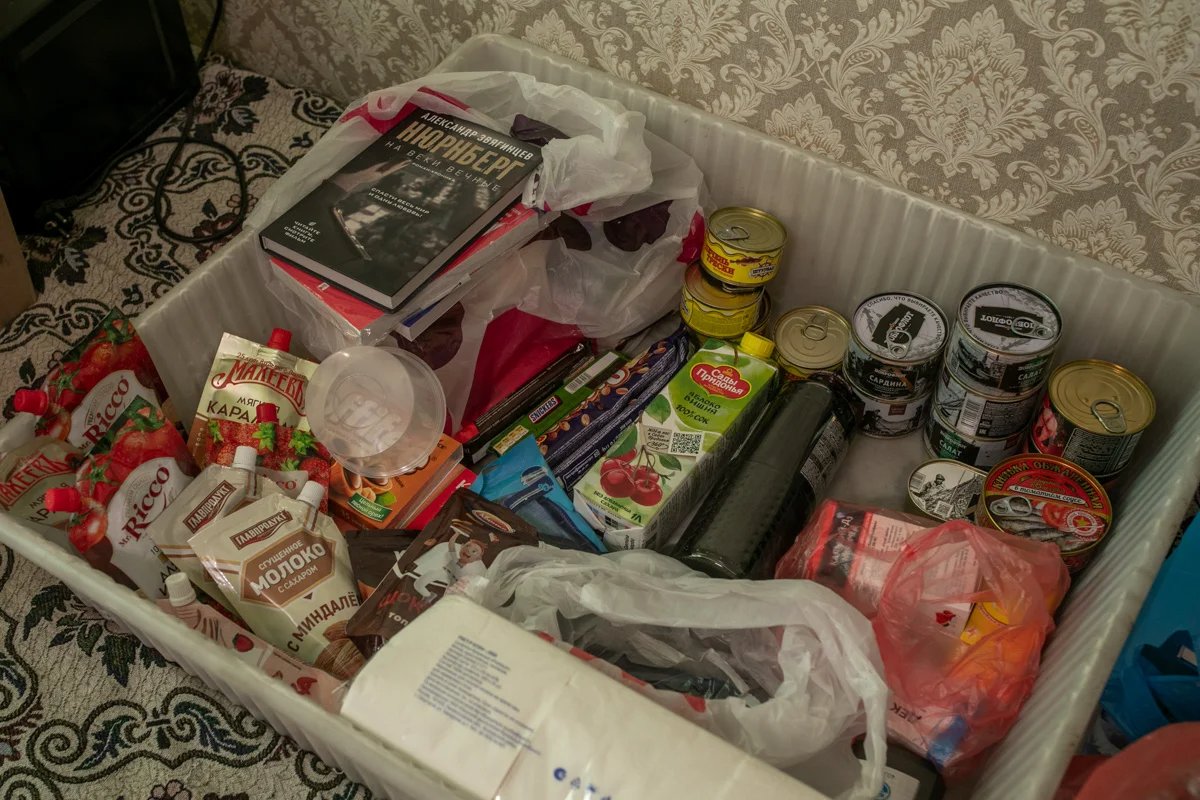
A parcel to be sent to Yegor in detention. Photo: Dmitry Tsyganov
His parents haven’t touched any of his belongings mainly due to superstitious fear, but also as they simply haven’t had time to do so.
“Our lives have totally changed,” Tatyana says. “My challenges used to be keeping the house tidy, making tasty and healthy food, feeding the dogs and cats, working … These seemed like such complicated tasks, real obstacles in my way.”
“And now I realise that none of it mattered. Why waste your time on that, when you can open the Russian Criminal Code and read the chapter about minors and how their sentences are calculated? Or open the Russian Constitution to study it. Or buy military dictionaries and investigate certain terms: what is ’war’, ‘special [military] operation’, ‘hostilities’. I’m a teacher, I like terminology. The ‘military operation’ has certain characteristics in the military dictionary. Now prove to me that what’s happening in Ukraine meets the characteristics of this term.”
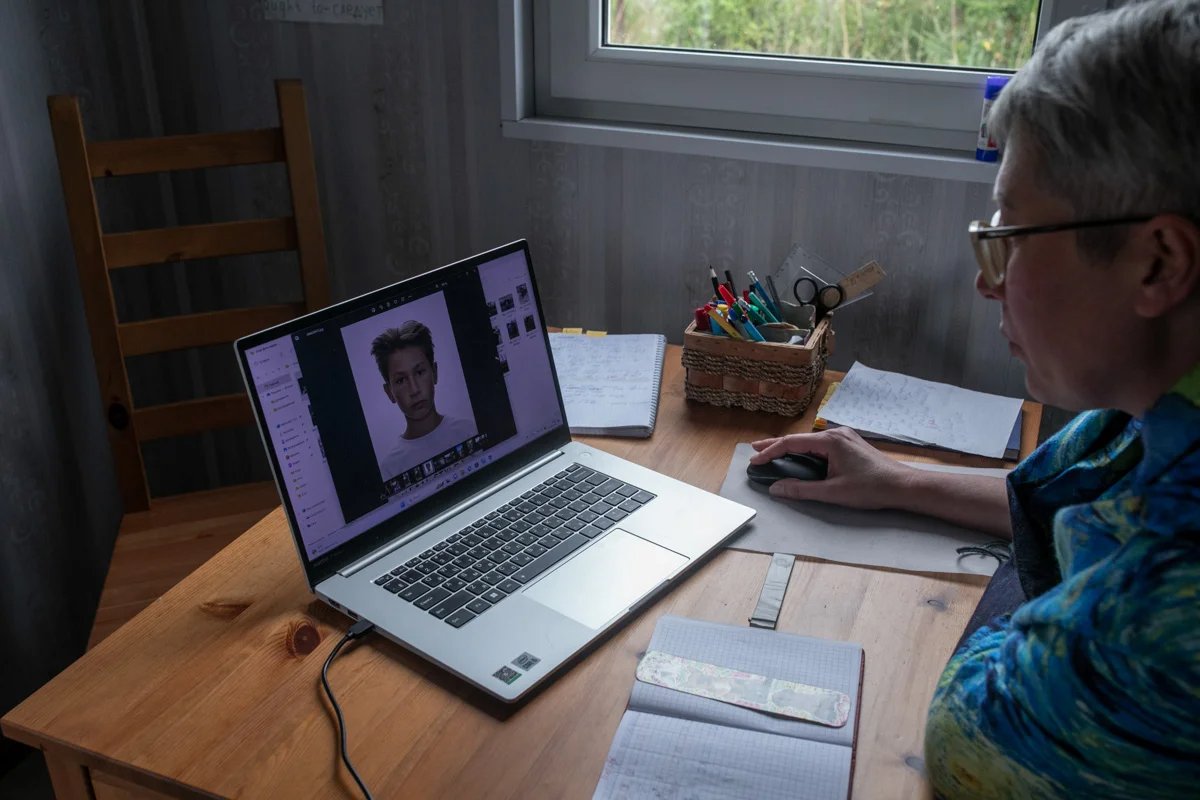
Tatyana Balazeykina. Photo: Dmitry Tsyganov
In an attempt to predict the length of sentence their son might get, Tatyana and Daniel have been monitoring rulings delivered in similar cases across Russia, where more than 100 people have been charged with setting fire to law enforcement and military recruitment offices since the invasion of Ukraine began last year.
Yegor, however, is not so bothered by his prison term.
“Prison is not the end of the world,” he told his parents during one recent meeting. “People in prison remain people. They are released, they continue living and can be happy. On top of that, it’s much easier for political prisoners to be in prison. Those who suffer for an idea, for the truth, cannot be broken. They don’t feel guilt. We recently had a guy and a girl taken to our detention centre for murdering a 13-year-old girl with a hammer. They walked around completely mortified, unable to look others in the eye. The guy once approached me and said, ‘What do I do? How can I live now?’ How should I know? I am not guilty. I am not guilty before anyone or anything. I have never killed, raped, mugged or insulted anyone. That inner freedom and confidence allows me to be very strong. I can continue living in peace.”
Truth seeker
The Balazeykin family home has no TV or radio. The family had no interest in politics or in the news until the invasion of Ukraine. In 2014, when Russia annexed Crimea, eight-year-old Yegor was diagnosed with autoimmune hepatitis. Since then, his parents have only been interested in hospitals and doctors. When Yegor later took up karate, the family’s efforts were channelled into achieving sports success.
The war came crashing into the small house in Otradnoye unexpectedly, as it did for most Russians. The parents recall that Yegor was the first to break the terrible news to them as he used to get up earlier than they did.
“We had no idea how to react,” the Balazeykins admit. “Is it a good thing that they’ve launched a special operation? Is it a bad thing? We had no idea about the backstory, any of the details or why this was happening.”
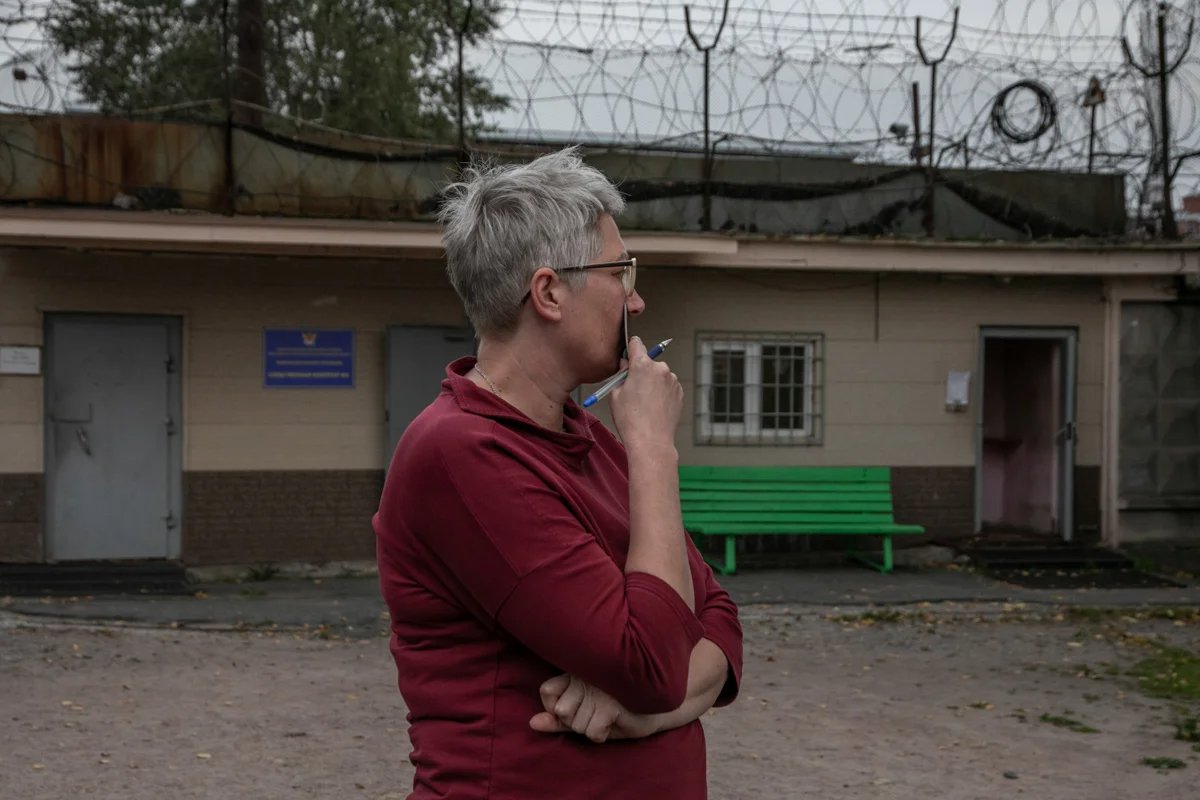
Tatyana Balazeykina near the detention centre. Photo: Dmitry Tsyganov
“We recently discussed this with Yegor,” Tatyana continues. “And he said, ‘I won’t lie to myself, I remember being quite distraught that the Russian army was suffering huge losses’. From a very young age, my son has been deeply interested in history, especially military history … He believed that the Russian army was powerful and invincible. This feeling of power started to crumble when they started showing burning columns of our military equipment.”
Later, when the atrocities in Bucha, Irpin and Mariupol became known, Balazeykin no longer thought about the military hardware that had been destroyed but about the human lives lost in the hundreds and thousands. His parents recall him watching, listening and comparing Russian and Ukrainian news sources to reach his own conclusions.
“That’s when Yegor started having a very different kind of worry.” Daniel recalls. “I can’t say that he stopped caring about the Russians and moved on to the Ukrainians. No! His worries simply doubled: they are all dying and there’s nothing that can be done about it. How do you stop this endless slaughter?”
‘This is already a victory’
In April 2022, Yegor’s uncle, Dmitry Balazeykin, volunteered to join the Russian army in Ukraine. Within two months he was dead.
“When we first visited Dmitry’s grave, he was the fifth soldier buried there,” Tatyana says. “One month later, a whole row had already been filled. It’s unbearable even for adults to see these ready-made graves being filled. Yegor categorically opposed the actions of the state and couldn’t stay silent any longer. He needed to publicly express his opposition,” Tatyana says.
“The step that Yegor took was unexpected for me,” Daniel admits. “But I was able to understand him. My son couldn’t have lived differently.”
“When he threw the bottle, Yegor knew full well that it wouldn’t change anything,” Tatyana continues. “After his arrest, Putin wouldn’t go live on air to say, ‘Ok, guys, let’s end this, people don’t want war’. He knew that wouldn’t happen. His objective was a different one — he didn’t want to be complicit.”
“By staying silent, you become an accomplice in what’s happening. My son did not want to be one and now he has no complicity in what the state is doing.”
“One person, 10, 20, 100 or even 1,000 people cannot change the regime. But the goal is not always to change something big. Sometimes, changes within yourself and the chance to remain unsullied until the end are just as important. Yes, Yegor might end up in prison for 10 years. But he will maintain his dignity for far longer than that. He will remain pure inside and so this is already a victory in itself.”
Join us in rebuilding Novaya Gazeta Europe
The Russian government has banned independent media. We were forced to leave our country in order to keep doing our job, telling our readers about what is going on Russia, Ukraine and Europe.
We will continue fighting against warfare and dictatorship. We believe that freedom of speech is the most efficient antidote against tyranny. Support us financially to help us fight for peace and freedom.
By clicking the Support button, you agree to the processing of your personal data.
To cancel a regular donation, please write to [email protected]
